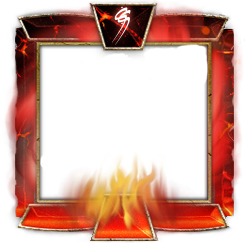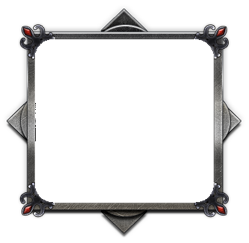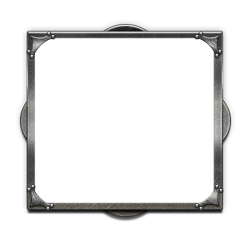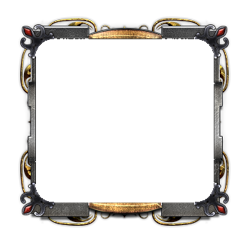Families in Chronicles of Elyria serve many of the same purposes as guilds in other MMOs. They provide a small, supportive social structure with a sense of identity, as players recognize themselves as being part of a family, a noble house, or a dynasty. They tie into the game's progress system by allowing you to pass resources you've gathered over a lifetime onto your heirs. And finally, they provide starting resources, a residence, and a source of learning in the early part of the game.
In this week's design journal we're going to take a look at the next two views in character creation: Family Path and Family Selection to see how you go about choosing (or not) the family that's right for you. To get started, let's make sure you have an understanding of the impact your choice of family has on your experience.

What effect does my family choice have in-game?
Families are vital to the land and kingdom management systems as it is more often than not families that build up their land, form towns, and establish growing dynasties. Families that get powerful enough may become nobles and play the Dance of Dynasties - the process of arranged marriages, intrigue, assassinations, lies and manipulations necessary to work their way up in the governing system to become kings and queens.
That being said, the family you select has a huge impact on your social experience, and not just when interacting with other family members. Your choice of family (and their social class) impacts how other NPCs, OPCs, and players interact with you. The family you select will also determine things like what type and how big your starting house is, and how much land your family has for farming, mining, breeding, and other land-based activities. Finally, there's a set of game mechanics tied directly to the family system.
These are, in no particular order:
- Family members on the same continent can send private messages to one another
- Members can always sense that a family member has been slain and is Spirit Walking.
- Members can find their way to a family members' body
- Family members help increase each other life span by creating a reason to live
- Line of succession as well as items naturally pass on to heirs when someone passes away
- Family members automatically get keys to shared household resources and can access and process the land without breaking laws.
- Family members can always see through disguises
- Family impacts fame, which effects how much spirit you lose when Spirit Walking
Families & Character Creation
Your family selection, through a combination of nature and nurture, dictates many of your character's starting attributes such as your starting ability scores, starting skills, and the possible set of physical attributes your character can have. Of course, you have the ability to change and develop these things as you play, but it is your family that dictates your starting scores.
How does family selection work?
Family selection in CoE works on a filter system. By default, the Soulborn Engine offers a set of families for you to choose from based on the age you've selected for your character. However, if the engine feels there's too many people clustered in one region (no starter towns in CoE) it may withhold families in that area seeking children and instead suggest another area of the map.
While it's great to have a large selection of families, you may have specific requirements for the family you want to join - and they may have requirements/expectations for you! To help with the matchmaking process the Family Selection Screen includes a set of filters which allow you to narrow in on a small set of families which you think will be a good fit for you. As you can see in Figure 1, family selection is currently divided up into five categories. These include:
- General Info
- Wealth, Power & Standing
- Occupations
- Disposition
- Physical Traits
General Info
The first filter category for family selection is general info. This section is dedicated to making sure you find a family with the same play style as you. It includes things like whether the family is made up of PCs, NPCs, or a mix, what time zone you're looking to play in, how many hours per week you want to put in, and finally what kind of a player you are. This final criteria is divided up into how experienced you are in CoE, as well as what you plan your main pass-times to be. This allows more hardcore families to filter out players new to CoE who may require a bit more hand-holding and also allows a family new to the game to find others to share in the learning experience.
Depending on what information you provide here, it will change the families that are displayed to you. So you could, for example, just specify the time zone you want to play in and get back a list of families who are either in your time zone, or active at the same time as you.
Wealth, Power, & Standing
The second filter category contains all the important information about the family and its place in the world. This category includes things like the number of families in the dynasty, the number of characters in the family, the wealth of the family, and it's social class. Only interested in joining one of the top 5 most powerful houses? Only want to be the child of a Lord or King? Don't want to risk permadeath by being 'Heir to the Throne of Gondor' (not a real kingdom), this would be the category you'd be interested in.
Occupations
Characters begin with a set of skills based on their family. Intuitively, we all know we pick up the skills, knowledge, and habits of our parents. So if you want to create a Blacksmith with this character, it might be a good idea to go here and select 'Blacksmith' as one of the occupations. This ensures one or both of your parents have a significant investment in the skills generally associated with blacksmiths. Add more skills to the filter and you can be more specific about the type of character you’re creating.
Disposition
In addition to the skills we pick up from our parents, nature plays a role as well. Our disposition, that is, our tendencies toward physical, mental, and social development also comes from our parents. So if you know you want to create a strong or willful character, come here to select those predisposition. This again will limit the families to only those available which would offer you such an outcome.
Physical Traits
Here is where you can filter for specific characteristics such as the gender, height, and hair, eye, or skin colors you want. Note that these, like most of the previous choices, are multiple select. So if you want to create a character with blue or green eyes, give those two a click. Now you'll limit your search to only those families which have children that could inherit green or blue eyes.

What if I don't want to be part of a family?
If you don't want to be part of a family, and there are a couple good reasons not to, you have some other options. First, as seen in Figure 2, you have the choice to be a Ward of The State. A Ward sacrifices the financial and social support system which comes with a family, in exchange for additional character customization and more flexibility. Wards are able to select any Gender and have a point distribution system they can use to set their starting skill values and character attributes. Beyond that, Wards begin at age 12 rather than age 15 and so have an additional twelve days of adolescence in which they can further customize their character's skills and abilities.
In exchange for the increased flexibility they lose more than just the social and financial support of their families. Wards have no right of inheritance, no ties to help bind them to the world if they Spirit Walk, and lack any close, telepathic bonds that would allow them to communicate with a family member remotely. In truth, Wards lead a lonelier and more isolated life in the beginning. Of course, they can always earn fame, recognition, and noble titles for themselves and begin their own dynasty!
Non-traditional Characters
The choice of Ward isn't for everyone and fortunately it isn’t the only way to avoid starting the game as a fifteen year old. We have a little saying, 'every NPC has the potential to become a player'. If you select a starting age over 18 years old on the Birth Date selection screen you have the opportunity to start the game as a 'non-traditional character'. Think of these as the opposite of Wards. You have significantly less control over your character, as their look, name, skills, and abilities are all pre-determined based on the life the NPC has lived up until then, however you can begin the game with an established business, as a reputable adventurer, or even as an existing nobleman. Note that you can change your name through legal means once you enter the game.
Can anyone join any family?
While we'll get into the requirements for creating children in a later design journal I did want to spend a brief moment talking about what players can do with the children they create. When you create a child you're given three options of what to do with the new NPC. The options are:
Close it off. It will manifest as an NPC child in the world after about a month, and only you can possess its body at a later date. If you decide later to open it up or share its Child Code you can.
Open it up to the public. If you're looking to grow your family quickly and don't have enough people to do so this may be the best option. After the child reaches age 15 other players will be able to find your child in the Family Selection Screen. Due to the way inheritance works, this option will likely be more commonly used for 2nd and 3rd children. And remember, they’ll only find your child if their search query matches the constraints you've placed on players you want in your family.
Share your Child Code. Every NPC in the game, children included, have a character code. If you share your child’s code with a friend, then after the child reaches age 15 they’ll be able to join your family as your child. This system also breaks an important barrier to entry on a server. Players can always join your server as your child if you share your child code with them, even if the server is closed for new players. This guarantees your friends will always be able to join your server with you if you've got room in your family for them.
What’s next
Next week’s Design Journal will complete our coverage on character creation and will explore “Character Customization, Names, and Regional Traits. “ At that point we’ll have exhausted our coverage on pre-game mechanics and future design journals will focus on what happens after your character enters the world.











